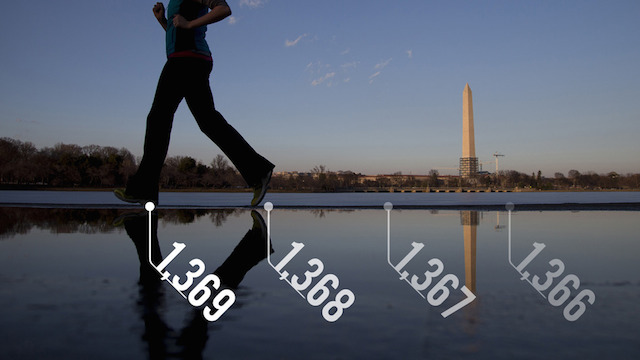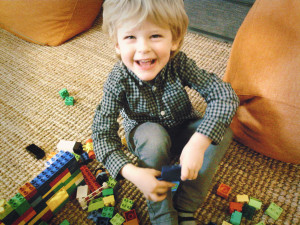The “miserable” days of lifelogging
Lifelogging is going mainstream. To those in doubt, you’re not alone. This week, we found a writer at Mashable, Max Knoblauch, who spent the past 30 days quantifying his life because he simply did not believe in the quantified self movement. After consulting a lifelogging guru, Nicholas Felton, who publishes his quantified data in beautiful graphics every year, Max started logging everything from the existential “Are you looking forward to today?” to the trivial, “What do you smell”. However, this to him was certainly not enjoyable because he felt that manual data input is a hindrance to the daily activity it’s supposed to be tracking. He had to intentionally interrupt his activities in order to key those self-tracking data into his mobile phone. Every 90 minutes for every single day. In other words, it was a total hassle. And he was miserable. However, as you might have already guessed, Max started seeing value in the things that he tracked. When he first saw how the data was visualized on his phone, he felt that his mediocrity is truly a sight to behold. This, as he concluded, is the real value of data tracking — revealing small, random yet somehow surprising bits of information that the tracker really wasn’t aware of. It’s all in retrospect. And like Steven Beatty rightly recognizes, it is addictive.
Read more: Lifelogging: The Most Miserable, Self-Aware 30 Days I’ve Ever Spent and Why am I so Intrigued with the Idea of Quantified Self?
Image credited to Mashable
Love and lifelogging
And if the love for self-tracking data is not going to move you to start quantifying your life, maybe this would. Here’s how Tom Fletcher, one of the lead vocalists and guitarists of English pop rock band McFly won the hearts of so many people simply by combining songwriting and lifelogging. As it is written here, “when he’s not busy writing amazing pop songs, Tom Fletcher spends his time making the male population look like talentless schmucks with his genius videos.” His latest creation? A video showing how he sang to his wife Giovanna’s growing belly throughout her pregnancy. Titled “From Bump to Buzz”, Tom documented every day out of the nine months of pregnancy and compiled the photos into a time-lapse video. Amazing. He’s definitely raising the bar for all the men out there with this, and the earlier video of his wedding speech!
Read more: 8 reasons why Tom Fletcher is probably the most talented man in the entire world – video special and How wearable tech can make dating more enjoyable
Happiness and the quantified self
And for all of us who do not have the privilege of having someone like Tom to track the growth of our happiness everyday, here are some apps that could facilitate the process. Known as Happify and Happsee, these mobile apps have been scientifically designed to quantify happiness. According to Happify, “You have the ability to control how you feel—and with consistent practice, you can form life-long habits for a more satisfying and fulfilling life.” So with that, the app recommends daily activities that deliver the best results for you based on your goals. Others, like H(app)athon, also believe that identifying how our actions affect our well-being allows us to track what behaviors increase our happiness. In other words – if you want your life to count, you need to take a count of your life. And it also means that happiness is a choice. Do you agree?
Read more: Quantifying Happiness: Tracking Well-Being in the Age of Quantified Self
Image credited to The Ultimate Happiness
The Glass view of Glass reactions
Like any new phenomenon that try to enter the mainstream market, the rise of lifelogging and the quantified self is not all that smooth. Just a few weeks back, Mashable sent one man to the streets of New York to take a look at how people react to the Google Glass, a device in which many would indicate as a lifelogging device. As he took it to the streets, many uninvited stares darted towards him. In addition, when asked if people thought it looked cool or creepy, two sides were quickly taken. And when revealed to cost approximately $1500, all of them unanimously said that they would not pay for the Google Glass. Yet, as mentioned here, wearable technologies have the potential to enable police officers to improve situational awareness and decision making in the field. Speculations have even been made that wearable technologies could be used in the field of politics. Where do you think wearable technology would head?
Read more: Google launches Android Wear platform for wearables, smartwatch Developer Preview, devices coming later this year and Wearables won’t just record our lives, they’ll change them
If you enjoyed this post, you can also subscribe to our monthly newsletter!



